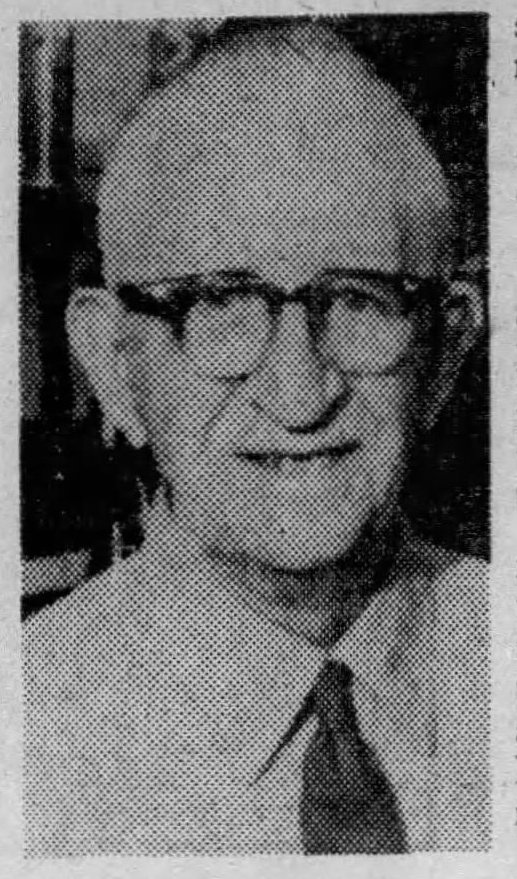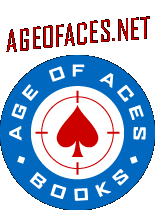Harold Fraser Cruickshank (1893-1979)
THIS month we’re spotlighting the work of Canada’s favorite son, Harold F. Cruickshank. We’ve had some good stories the past couple weeks spanning his pulp career. Unfortunately, like all great things, it must come to an end. And we’re ending our month devoted to Harold F. Cruickshank with his obituary.
In finding his obituary, we discovered that his lifespan as listed around the internet is wrong. He did not pass in 1965, but fourteen years later on March 31st, 1979—ten days after his 86th birthday!
So, without further ado—
War-era author dies after lengthy illness
Edmonton Journal, Edmonton, Canada • Tuesday, 3 April 1979, pD8
One of Edmonton’s most prolific authors, Harold Cruickshank, is dead at 86.
The writer of numerous action-adventure stories, Mr. Cruickshank died Saturday in the Misericordia Hospital. He had been in failing health for several months.
His early wartime stories appeared regularly in American, Canadian and British ‘pulp’ magazines, so named because they were printed on newsprint rather than fine paper. They were often looked upon as being too racy.
Mr. Cruickshank’s career began in the early 1920s and continued almost to his death, though he actually began writing while fighting in Belgium in 1915.
Soldiers in his battalion, the 7th Canadian Infantry, were asked to write something to keep them busy. For his piece he received first prize. It was later sold and published in a British magazine.
After being wounded in the Battle of the Somme, he was discharged in 1918.
Bom in Wales of Scottish parents, he emigrated to Alberta with his father and brother in 1905 settling near Barrhead. But because of his health he was unable to return to homesteading and settled in Edmonton where he worked for the education department.
In his spare time he became one of the more popular pulp authors. He began writing full-time, selling his first major story in 1923 to Western Home Monthly, forerunner of Chatelaine.
He often produced and sold up to eight 6,000-word stories a month published under various pseudonyms, the most well-known being Bert Fraser.
Stories ran in such famous magazines of the day as Battle Stories, Battle Birds, Battling Aces, Dare-devil Aces, Air War and Sky Fighters, under titles like “The Village of The Living Dead,†“Judgment of The War Gods†and “Where Death Lurks Deep.â€
Drawing on his own war experiences as background, his characters were often involved in war exploits. He created heroes like Captain Bill Dawe the Sky Devil, a First World War flying ace, whose escapades were run in serials. Dawe was patterned after Mr. Cruickshank’s own infantry commander.
As the demand for war stories began to fade he turned to writing wilderness adventure stories based on his early homesteading experiences.
In addition to changing times, he also found himself competing with other popular pulp writers of the day — Erie Stanley Gardner, Luke Short, James Warner Bellah and George Fielding Eliot.
The emergence of modem magazines, paperbacks and television eventually killed the pulp magazines, a situation which Mr. Cruickshank, according to son-in-law Bert Nightingale, found disturbing.
“He worried about its effects on young people,†said Mr. Nightingale. “While he did not have a simon pure attitude, he felt his writing as it used to be was more suitable.â€
Mr. Cruickshank was also a frequent contributor to Liberty and Maclean’s magazines, as well as to the old Edmonton Journal feature Third Column.
Recent works were published in Heritage Magazine and other government publications. Tie received an Alberta Achievement Award for writings on pioneer life.
Mr. Cruickshank lived at 10925 126th St. for almost 40 years. He is survived by his wife, Dolly; a daughter, Edith (Scotty) Nightingale; two grandchildren and two great-grandchildren. A son, John, died in 1945.

Funeral services will be held at 10 a.m. Wednesday at Foster and McGarvey Chapel.
- Download “War-era author dies after lengthy illness”
(April 3, 1979, Edmonton Journal) - Download “Well known Alberta writer dies”
(April 4, 1979, The Leader Post)




